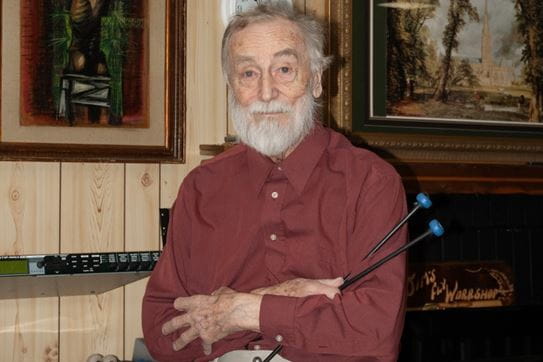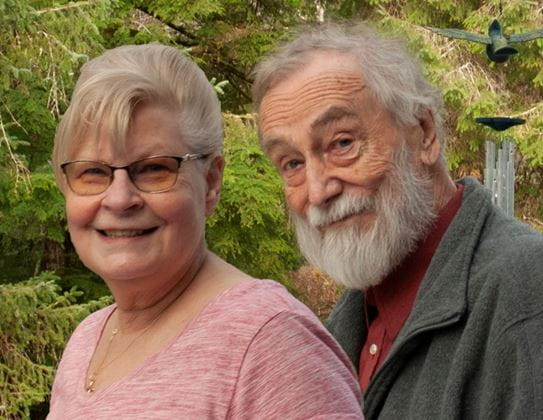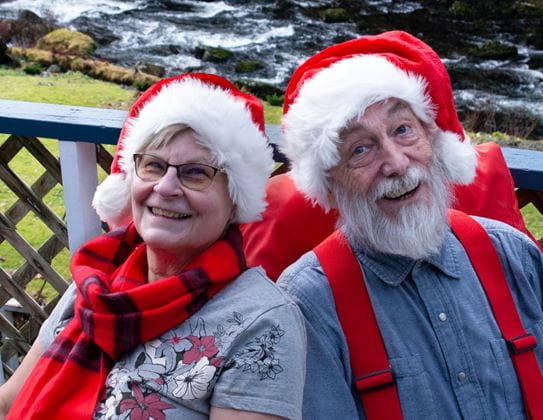During James Miller’s slow recovery from double pneumonia, his doctor began noticing signs that he didn’t recognize. The markers in James’ pee indicated that something was wrong, and within 3 weeks, James had a kidney biopsy, a bone marrow biopsy and a blood test.
He was diagnosed with AL Amyloidosis, which is closely related to multiple myeloma (blood cancer). James was given 1 year to live if he didn’t begin treatment right away.

Financial support for travelling to treatment
James and his wife, Gladys, live in a remote town on the coastal region of Northern British Columbia, a 44-kilometre boat ride away from the nearest hospital. That hospital wouldn’t have been able to treat James with chemotherapy. Because he needed weekly treatment for the first 6 months, the couple knew they would have to relocate.
Living in a remote community, James and Gladys knew they would face the financial difficulties of travelling for treatment. This would mean paying for air fares, accommodation, meals and ground transportation. The couple worried about their financial stability and the possibility of using up their retirement savings.
“If we’d had to pay the cost of accommodations and travelling, we wouldn’t have been able to get out of our town for treatment. We would have been broke before treatment could be completed,” James says.
James and Gladys learned about the Canadian Cancer Society lodges, homes away from home for people who need to travel for treatment. The couple made plans to stay at the Kordyban Lodge to begin treatment at the Prince George cancer clinic. While trying to figure out how to get to and from the lodge, they also learned about the Cancer Travel and Accommodations Service (CTAAS).
Created with funding from the BC government, the Canadian Cancer Society has partnered with Hope Air to help people access travel services through CTAAS.
Thanks to CTAAS, James and Gladys were able to get their trips to and from the Kordyban Lodge reimbursed with the CCS Travel Treatment Fund. This covered some of the costs of getting to and from appointments, such as ferry travel, gas and parking fees.
“The CTAAS program helped us immensely. We could not continue going back to Prince George for James’ monthly treatments because the cost of flights would crucify us financially,” Gladys shares. “Without this program being available, the financial stress on me and my husband would not make treatment possible or as pleasant as it has been.”
The CTAAS program improved our lives and is benefiting other people as well. It has helped us as we had to stay six months away from home. We couldn’t have gone through with James’s treatment financially without the help.

Finding connections at the lodge
James and Gladys stayed at the Kordyban Lodge from May to September 2024. The couple became a source of joy and laughter for many people at the lodge, making plenty of friends who thanked them for their positivity.
“Our whole experience at the lodge turned into something that was possibly going to be miserable into something so positive. When we got back home and had to go back for a treatment, we actually really looked forward to going back to the lodge. It was like going to another home,” James says.
Staying at the lodge not only helped ease their financial worries but also supported them emotionally. With its caring people and warm atmosphere, the lodge became a place of comfort and a home away from home for James and Gladys.
James’ treatment consisted of targeted cancer drugs and chemotherapy medication. As of February 2025, James is on maintenance therapy to prevent the cancer from coming back. His doctor is very positive about his future.

We can help you travel for cancer care

The CTAAS program improved our lives and is benefiting other people as well. We couldn’t have gone through with treatment financially without the help.
Help create a future without cancer
With support from readers like you, we can continue to make a meaningful impact for people affected by cancer.
We are determined to increase survival, stop cancer before it starts, and improve lives. But we can’t do it without you.
If everyone reading this gave just $5, we could achieve our goal this month to fund the most promising research, compassionate support and transformative advocacy. Please give today because every contribution counts. Thank you.
